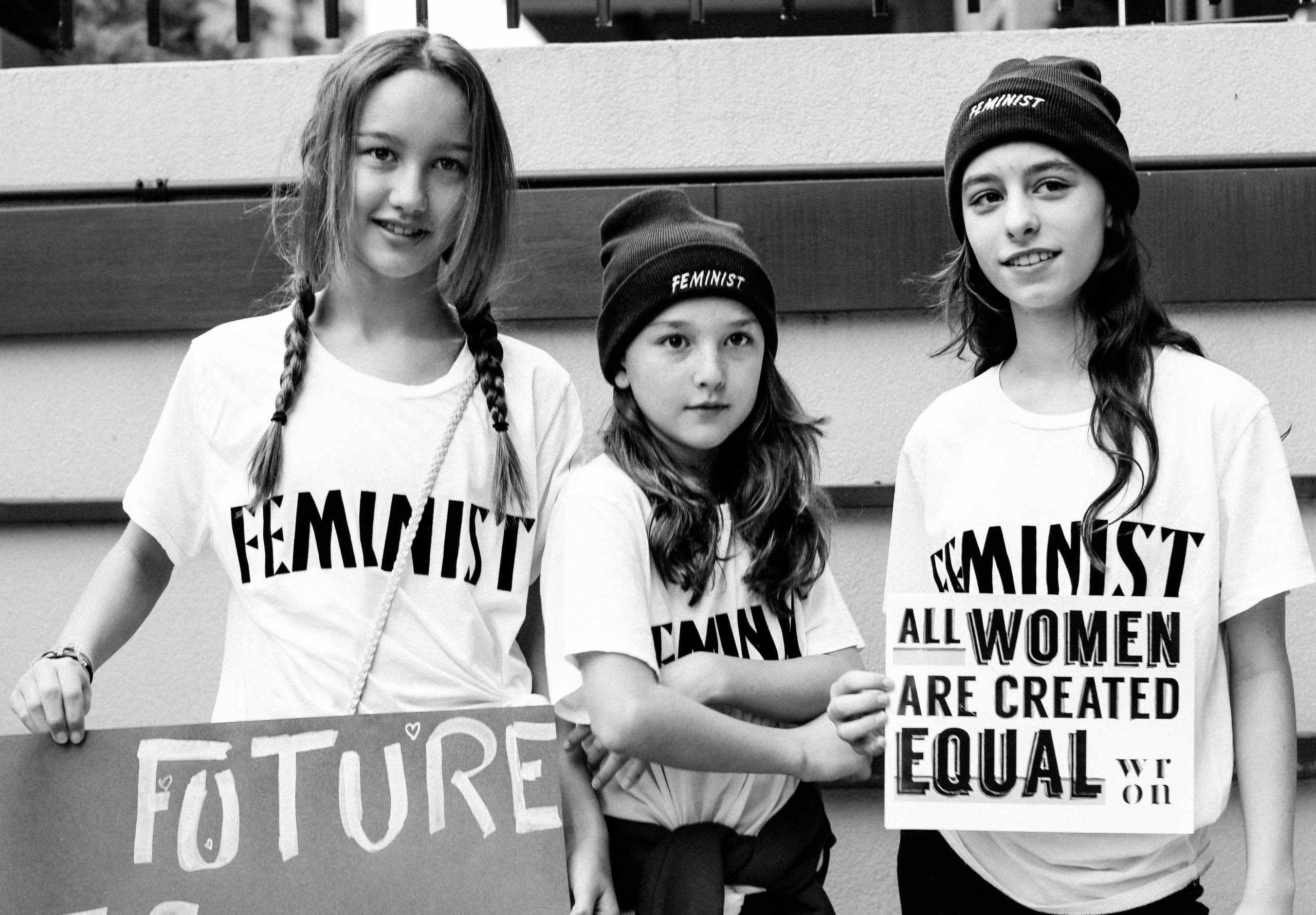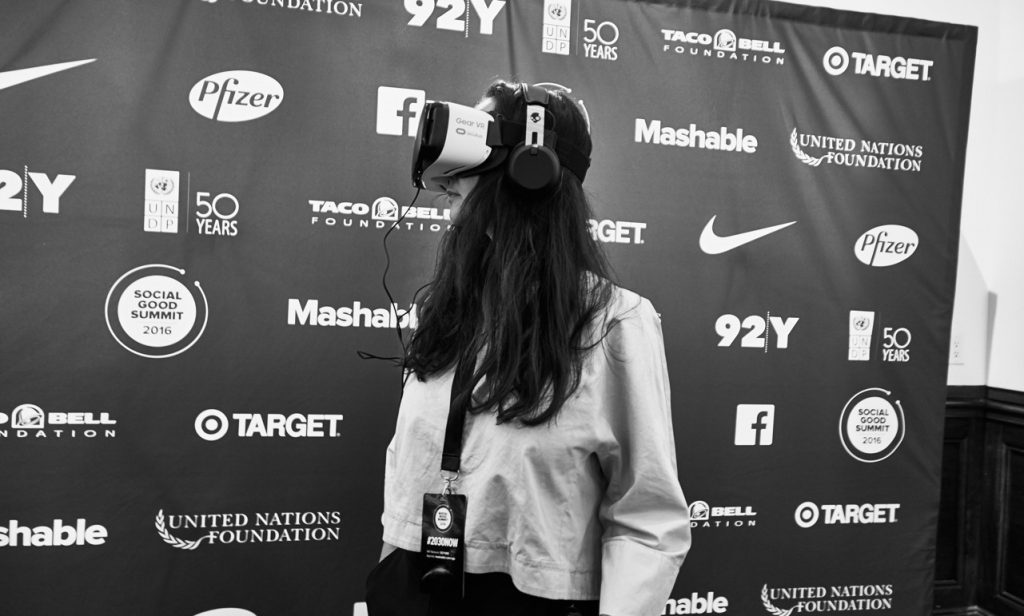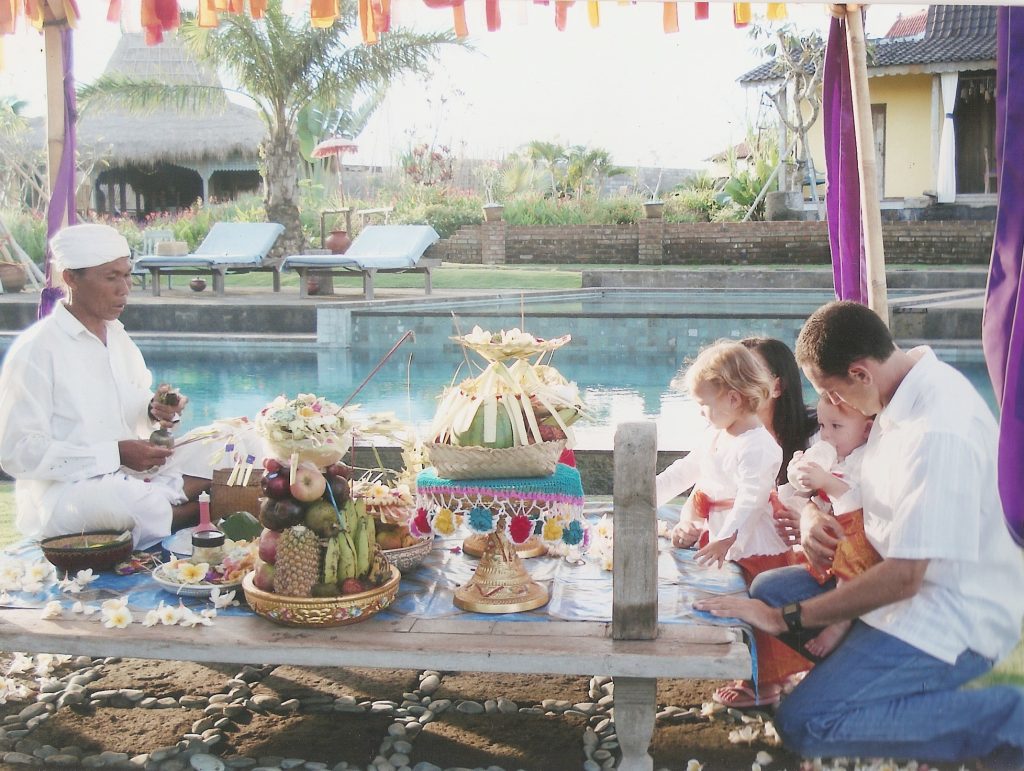Sybil Steele wants to make sure we don’t have to fight thousands of feminist revolutions in the future, in digital worlds created by men.
She’s the founder and CEO of VR tech company, Temme Media, pioneering the emerging fields of virtual reality and augmented reality, where she’s making sure women’s voices and interests are incorporated fully. She’s also active in the Future is Feminine Initiatives.
Her answers to our questions are bursting with interesting ideas and smart advice.
You’ve said that when you dropped your Women Studies major, you just weren’t ready or equipped for what Women’s Studies entailed. What do you mean by that?
I was referring to a time, when I was 21, when I felt I was to ill-equipped to know what to do with the extreme frustration and rage I had when I learned about the abuse women suffered on a global level.
The knowledge that women could be stoned to death for driving and the injustices of war were shocking. This was pre-internet so we didn’t have access to information like we do now and our only resources were school or books. The women studies program opened up a whole new reality and perspective.
It took me years to develop my voice on this subject and find a medium in which I could actually take action, or channel services in a way that would benefit others.
What we do at Temme is look at the media we create through a lens of helping to solve problems and contribute to improving the lives of girls and women, which includes everything from cultivating powerful messaging to acknowledging that the way women process dynamic content opens up so many amazing opportunities to use technology. To your answer your question, what I mean is, with hindsight, I’m thankful I detoured off my Women’s Studies route and joined the Art Department, because I never would have had the chance to experience media production at every level. I was able to tap into my creative center and bring it all back full circle at a different time in my life.
My advice is to enjoy your journey because one day it all clicks together, just the way it was supposed to! Try different things and see how you can bridge the best of each of those together into your dream job or for a higher purpose.
You took over the production side of your husband’s surf film business in your 20’s. What did you learn about business in that process? How did you build it up? You’ve said that you were the bad girl who put systems in place with a lot of surfers. How did you get the knowledge and guidance you needed?
I grew up in an extremely organized house. Nothing was out of place and to-do lists were rules to live by. My parents were both very successful career driven people who valued order, structure, and efficiency.
When you meet surfers, they have such a different way of approaching the world. It’s not all zipped up. They are in tune with the ocean which is unpredictable and adventurous. You don’t go to work or pay the bills if the waves are good because those aren’t the priorities.
Since I’m a systems person, always collating and analyzing information and structure, I certainly wasn’t the obvious candidate to run the show of 10 surfer dudes. The “bad girl” for me is a joke that means the person who wants to inject structure and systems into a culture that doesn’t naturally hold those as core values. Freedom, flow and counterculture are more in tune with the surfer lifestyle and that carries over to business aspects as well.
But what I also learned was that businesses, like ourselves, require a balance of influences to truly evolve.
I failed 100 times and it was such an intense and exciting period. I’m thankful for all of the times I tripped up, miscommunicated, made poor decisions and stood by my intuition. It was my first real job and I was 26 trying to build something. I read books and turned to advisors but it was all such a new experience. A sink or swim one!
Reflecting today, about 15 years later, I hired key people who we still work with and have contributed immensely to our success. They helped to support the structure that has allowed us the flexibility to travel around the world and work remotely.
The failures have been huge wins in disguise.
You moved to Bali, Indonesia, because you wanted a whole new life without overhead and employees. Then Australia and New York. You’ve said that there’s a lot of red tape involved in moving your family around. Since this office-free, remote lifestyle is on the rise, do you see the rest of the world catching up with you? What is the main lesson beginners are missing?
Yes, I think it’s a wonderful way to live your life and career. But you have to be organized, willing to take chances, and to risk it all – our network, your safety, your nest egg. It’s great if you don’t have to risk it all but sometimes it just feels like a complete upheaval.
My favorite thing is to arrive in a new hometown and know maybe one or two families, but leave the rest to whatever may come.
New friends, projects, jobs, tumbles, wins, losses and growth.
Eventually you rebuild and find yourself growing in ways that were previously impossible. The challenges and insecurities that arise when overcoming certain obstacles undoubtedly make you stronger and the sense of achievement you feel is fuel to do it all over again.
Adapting is like training a muscle. The scary part is wondering if you will ever stop moving once you have trained yourself and how to find satisfaction in sameness and not total upheaval. That’s something I’m working on now because I am craving routine and building something more permanent.
The hardest thing is leaving friends and community when you move. But I think that also requires a shift in perspective, because you learn that you’re not leaving, but rebuilding up a worldwide network that just looks different. In the last month, I’ve had three calls from our beloved beach town of Byron Bay in Australia. Women who are creating amazing programs and want to collaborate with Temme and our vision. I’m thankful to still have those connections and tie into all of our heart homes.
The main lesson beginners are missing? I’m not sure. It’s much easier to be a remote world gypsy in 2018. This was 2004-2010. Instagram was not around and FB was but not sure how much we used it in the early days. We went to internet cafes to get our emails.
Now companies will actually pay individuals to do what we did. We paid for it ourselves – In spades! The only advice I can give is to just do it. Organize what you can…And the rest, if you put yourself out there to new experiences, will work itself out.
As a producer of an emerging tech studio, what are your thoughts on the potential and the danger in VR and AR? Seems that a big aspect of it is the ability to trick our brains. How much does that figure into what you want to use it for?
Immersive experiences such as VR have the potential to be very scary for women and this is the problem my company Temme Media is trying to solve. VR could be scary in the wrong hands but with the correct tools, intentions and content, it has the ability to revolutionize the way women consume media. This problem and my urgency to create a positive future for my teen daughters is the inspiration behind Temme Media and it’s initiatives such as The Future Feminine.
From a creative and production standpoint, why not help contribute to building a positive, safe, inspiring and awesome space rather than looking at it as something we’re using to trick our brains (interestingly, there are plenty of people studying brain science that would say we’re always tricking our brains even in reality!)? Why not help write the future for women that embraces all we can to know ourselves better, feel empowered and have fun? If it’s going to change our brain chemistry, shouldn’t we as women be controlling these changes? Absolutely.
We are currently very actively trying to solve thousands of years of problems in our physical form, can you imagine what will happen in our virtual forms?
And when they blend together? We would face thousands of feminist revolutions in the future in digital worlds that we didn’t define, create, monitor, allow or produce. It’s about having a voice and initiating a digital feminist revolution before it’s desperately needed.
Tell us about a project you are most proud of.
I’m really proud of all of our projects (some of which I can’t discuss because they take time in production and are not yet released) but each project is so new and different.
When clients ask what can we do in our creative studio, it can be a long conversation. “Here’s what I think we should do for your goals, but anything is possible.” Often it’s never been done before because we are looking at problems and solutions with entirely new tools and perspectives. Our clients can be the first to market to offer these experiences to their audiences.

Sybil’s daughters and niece.
The abilities and services on offer from our creative studio aren’t definitive answers. That is, with these emerging technologies, the only limitation is your imagination (and budget). So we sit with our clients, assess their current situation and offer them what we see to be the most creative, engaging and innovative solutions to their problem.
Of course, I’m proud of any project that helps humans be better, feel better and do better. Improving our consciousness and our lives is really the true measure of success. Not money or fame or power.
Something I can share some details about, which is an initiative I hold very close to my heart, is Temme Media’s The Future Feminine.
The project focuses on creating a safe space for young women to learn, create, inspire and be inspired. We are in the early stages of building an immersive platform of content and experiences for them to engage with learning tools, interaction that helps them to understand the world from a female framework and more.
Within this universe we want to equip our teenage girls with the tools to create positive and impactful change in the world. We are launching our crowdfunding campaign later this spring.
Though I agree, we as women need some power and money to have serious change. It’s incredible to witness the energy that’s behind the women’s movement today in all industries.
Our goal is to ensure equality and safety for girls and women in the digital and virtual realms.


